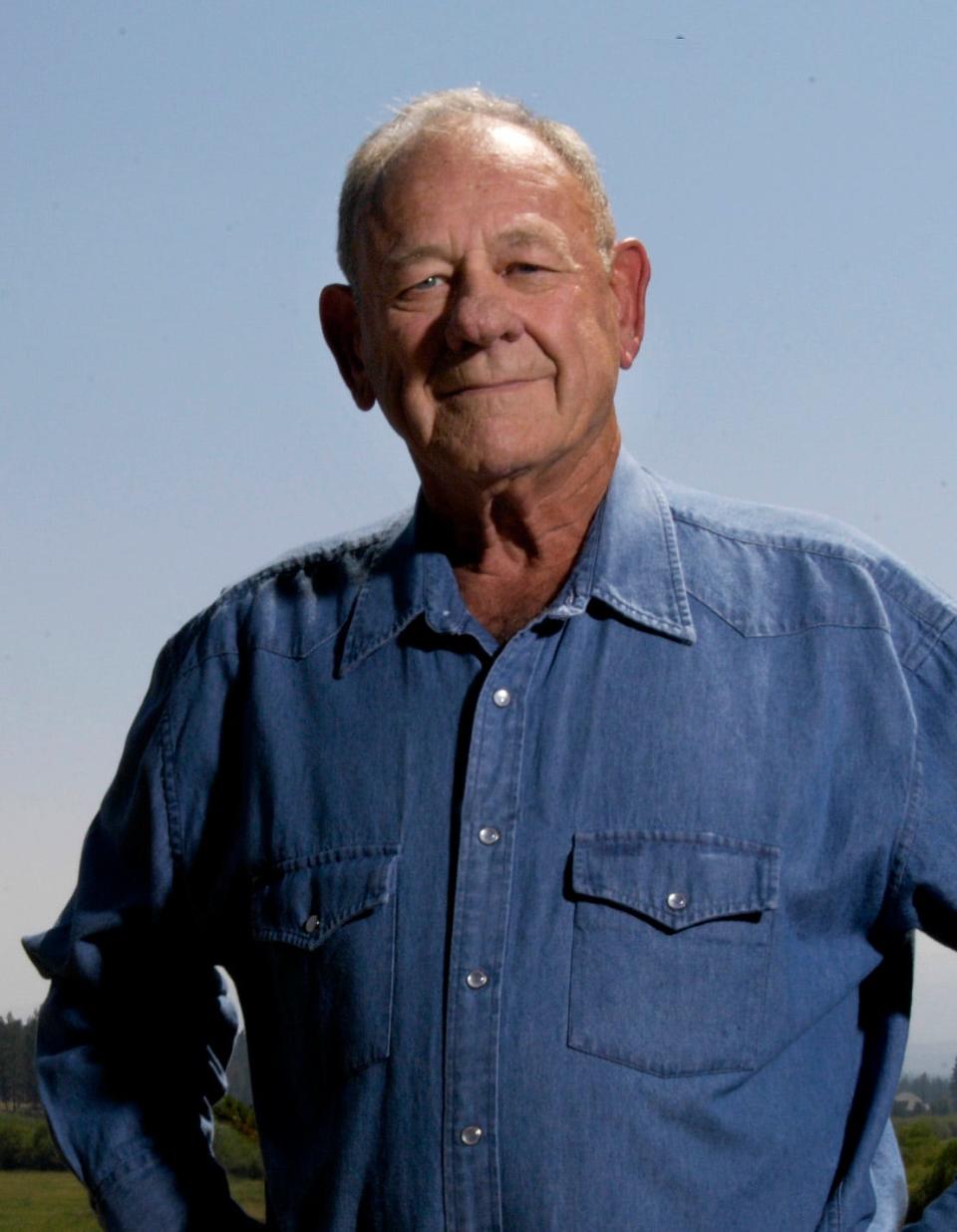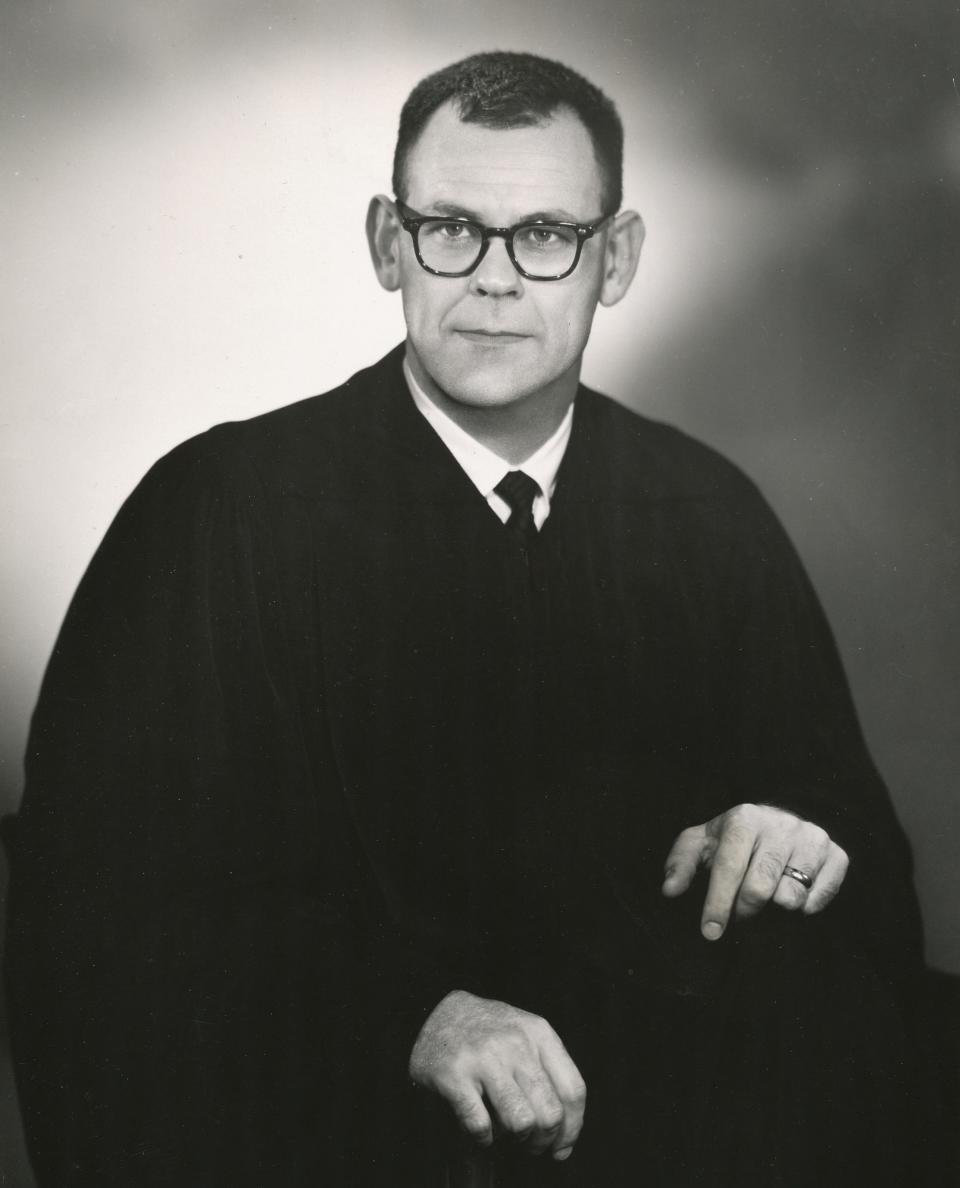Alfred Theodore 'Ted' Goodwin remembered for landmark Oregon cases
After more than 60 years of service as a judge, Alfred Theodore “Ted” Goodwin leaves behind an esteemed legal career that greatly impacted Oregon and the West.
Goodwin died in December in Bend. He was 99.
At the time of his death, Goodwin was the oldest federal judge in the country, and the longest-serving current federal judge, according to the 9th U.S. Circuit Court of Appeals.

Goodwin was born in Bellingham, Washington on June 29, 1923, and was the oldest of eight children. His father was an itinerant Baptist preacher, and moved the family throughout the West Coast. Goodwin attended high school in Prineville, where he spent his summers working on ranches, solidifying his cowboy status as an avid horse rider.
He attended the University of Oregon and studied journalism. He was a participant in the Reserve Officers’ Training Corps and, during his second year at UO, was called to serve in Germany and the Philippines during World War II from 1943 to 1946.
Legal struggles:Attorneys' group blames Lane County as DA struggles to hire, retain prosecutors
Upon returning to UO, Goodwin spent time as editor of the Daily Emerald and finished his undergraduate degree in journalism in 1947. He also worked as a reporter for the Register-Guard, something that he was proud of, his son Karl said. Goodwin even kept the desk he used at the paper for many years.
In 1951, Goodwin received his Juris Doctor degree from UO School of Law. According to Karl, Goodwin loved the law school and valued his time there. He was always fond of the dean, Orlando Hollis, Karl said, who was known to be quite tough.
Goodwin’s legal career began in Lane County. He joined the Eugene law firm Darling & Vonderheit, working in general practice. He was appointed to serve as a judge in the Lane County Circuit Court by Gov. Paul Patterson four years later.
In 1960, Gov. Mark Hatfield appointed Goodwin to the Oregon Supreme Court. He served on the court for almost 10 years and became known for his skill in writing opinions.

While on the Oregon Supreme Court, Goodwin ruled on the Eugene cross case, in which he wrote that a large cross atop Skinner’s Butte in Eugene should be removed in order to separate church and state — something Goodwin seemed to value greatly, Karl said. This was also a case Goodwin continued to mention, Karl said.
The 1969 Oregon beaches case was one of Goodwin’s standout Oregon Supreme Court rulings. Goodwin helped preserve the dry-sand area for the public after a motel owner in Cannon Beach tried claiming exclusive access to the beach outside his motel.
In his opinion, Goodwin wrote that the beach between mean high tide and the visible vegetation line belonged to the public.
In 1969, President Richard Nixon nominated Goodwin to the U.S. District Court for the District of Oregon. Two years later, Goodwin was appointed to the 9th U.S. Circuit Court of Appeals. He kept his chambers in Portland for the first ten years but moved to Pasadena, Calif. in the early 1980s upon the request of the chief judge.
While on the Ninth Circuit court, Goodwin sat on many cases that were influential in Oregon. He sat on the “spotted owl panel,” whose rulings enforced federal environmental statutes with substantial effects on the timber industry in the Pacific Northwest.
One of Goodwin’s most iconic rulings came in Newdow v. U.S. Congress. His ruling found that forcing children to recite “one nation under God” during the Pledge of Allegiance violated the separation of church and state.
Throughout his career, Goodwin continued to have an active presence at the UO School of Law. He served on the UO Foundation Board of Trustees from 1964 to 1970, and in 1972 he received the UO Distinguished Service Award. In 1989, he gave the law school commencement address as the highest judicial appointment ever attained by a graduate from the UO School of Law. One year later, he was named UO Distinguished Alumnus.
Ted and his wife Mary moved to Sisters full time in 2012, where he continued to ride horses and do ranch work. His love for the high desert country remained with him throughout his life, Karl said. He seemed the happiest when he would bring his family camping in central Oregon, or when he’d work on various ranches, Karl said.
He’d often help his friends with brandings and gathering cattle on horseback. His love for horses led him to become a longtime member of the Skyline Trail Riders and he participated in rides for many years, Karl said.
Goodwin continued to handle cases late into his 80s early 90s. He even took an occasional federal trial case for Judge Michael Hogan in Eugene because he enjoyed keeping a hand in trial work from time to time, Karl said.
“He really, really believed in the law and loved the law,” Karl said. “He was just so devoted to his work.”
Makenzie Elliott covers breaking news and public safety for The Register-Guard. Reach her at MElliott@gannett.com. Find her on Twitter at @makenzielliott.
This article originally appeared on Register-Guard: Alfred Theodore 'Ted' Goodwin remembered for landmark Oregon cases

